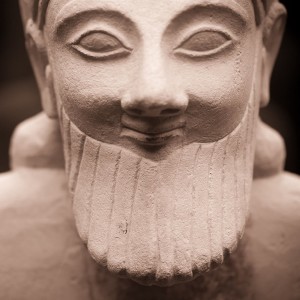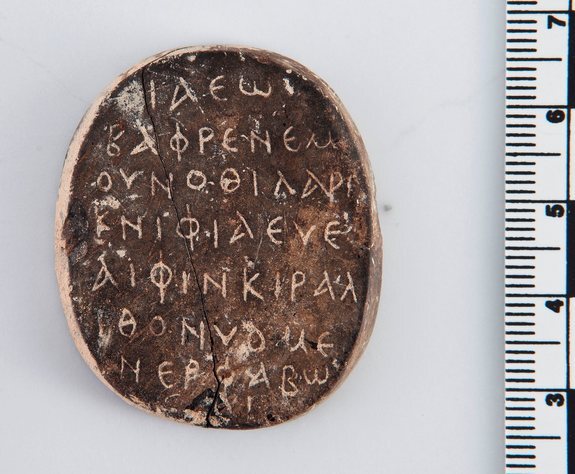The History of Cyprus Podcast
Welcome to The History of Cyprus Podcast -- a monthly series exploring the island’s past from 10,000 BCE to the 20th century. Each episode features in-depth conversations with leading scholars in archaeology, linguistics, political and social history, bringing academic insight to a wide audience. Together, we uncover the languages, cultures, conflicts, and legacies that shaped one of the Mediterranean’s most storied crossroads. Whether you’re a student, a history enthusiast, or just curious about Cyprus, this podcast offers something for everyone -- rooted in research, driven by storytelling. If you’d like to reach me, my name is Andreas. Please feel free to send me an email at cyprusthepodcast@gmail.com --------------------------------------------------------------- Follow The History of Cyprus Podcast Instagram and support the show on Patreon: https://www.patreon.com/TheHistoryofCyprusPodcast https://instagram.com/thehistoryofcyprus *The podcast image, ”Dressed for the Gods” (250BC) is from the British Museum taken by William Warby. Check out more of his work at flickr.com/photos/wwarby/
Episodes

Wednesday May 10, 2023
Wednesday May 10, 2023
Thank you for listening to the History of Cyprus Podcast. I'm incredibly grateful for your support, and I'm thrilled to have you as a listener. Creating this podcast is a labor of love. It's not monetized -- and I'd like to keep it that way, ad free and accessible to all. With that said, it also comes with real costs -- from hosting fees to equipment, research materials, producing the Primary Sources and editing expenses. If you enjoy the podcast and want to help continue to produce new episodes, I kindly ask that you consider supporting The History of Cyprus Podcast through Patreon. Your financial support will allow me to continue bringing you fascinating stories and insights into the rich history of Cyprus and offset the costs involved in producing the episodes. Thank you again for your support -- I couldn't do it without you! https://www.patreon.com/TheHistoryofCyprusPodcast

Tuesday May 02, 2023
Tuesday May 02, 2023
For thousands of years, Cyprus exploited its richest resource: copper. The copper trade was, after all, synonymous with Cyprus and integral for its wealth. While the importance of copper is known, certain questions remain: how did ancient Cypriots source copper? What processes were involved in its extraction? What were the risks and dangers involved with mining? How was copper refined and exactly how much was produced? Archaeologist Lina Kassianidou (University of Cyprus) joins us to answer these questions and more in this month's episode.

Saturday Apr 15, 2023
Saturday Apr 15, 2023
Although many of Aristotle's observations on Cyprus' natural resources have proven to be false or misleading, this excerpt certainly speaks to Cyprus' perceived wealth in natural resources -- renowned for centuries. Next month, my guest is Lina Kassianidou (University of Cyprus) who shares with us the history of Copper Production on Cyprus and how it was sourced, extracted and refined in antiquity. If you haven't had a chance yet, you can also check out "Primary Source VII: The Hand of Nergal" for another look at the Copper Trade in the period.

Sunday Apr 02, 2023
Sunday Apr 02, 2023
Rafael Laoutari (Cambridge University) shares a lesser known aspect of archaeology, namely, that of ethnoarchaeology, using it as a lens to explore cheese-making in antiquity. We discuss cheese-making on Cyprus in the archaeological record and the earliest literary references to Halloumi that we know of. By studying how Halloumi is produced in rural settings and recreating its traditional methods, Rafael gives us insight into our past and helps us better understand the act of dairying culture in Cyprus and beyond.

Wednesday Mar 15, 2023
Wednesday Mar 15, 2023
Richard Pococke (18th century) was an avid traveler providing us with one of the earliest literary allusions to Halloumi. Though not the first reference (that honour may go to the Doge of Venice, Leonardo Dona, who lived in Cyprus for a period during the Venetian era), it does show that Halloumi was well known throughout the Levant. Next month, I invite Rafael Laoutari (Cambridge University) to discuss Halloumi as a lens in which to explore cheese-making in antiquity, and specifically, in Cyprus.

Thursday Mar 02, 2023
Thursday Mar 02, 2023
The canvas isn't simply a medium that the artist uses to capture an image. The paintbrush can be loaded with preconceived notions, biases and agendas. What is more, it can be revealing in ways never considered and provide a unique lens into the past. Rita Severis (the Co-Founder of the Costas & Rita Severis Foundation and Honorary Consul of Canada) is this month's guest. And for this month's episode, Rita shares with the History of Cyprus Podcast, a new lens in which to explore Cypriot history: that of the travelling artist. To borrow from her book jacket, her research "examines these works through the prism of the political, historical and social context, spanning three centuries...and throws light on the changes from the Ottoman/Oriental to the British/Occidental in the portrayal of both domestic and public scenes." Please visit the CVAR website to learn more about the cultural history of Cyprus: https://cvar.severis.org/en/ The heart of the Foundation, the Centre of Visual Arts & Research, which houses thousands of books, works of art, textiles and memorabilia, is a "non-profit organisation for the promotion of Cypriot culture, reconciliation and peaceful coexistence."

Wednesday Feb 15, 2023
Wednesday Feb 15, 2023
Esmé Scott-Stevenson, wife of the Commissioner of Kyrenia, authored several books documenting her travels across the Mediterranean. She traveled throughout Cyprus with a number of dignitaries and, in 1880, she published "Our Home in Cyprus," observing Cypriot customs in 19th century Cyprus. Her work offers us a springboard into this month's episode, "Travelling Artists in Cyprus 1700-1960," with Rita Severis, the co-founder and Executive Director of the "Centre of Visual Arts and Research" (CVAR) in Cyprus.

Thursday Feb 02, 2023
Thursday Feb 02, 2023
Luca Zavagno's (Bilkent University) work, "Cyprus Between Late Antiquity and the Early Middle Ages" frames the bulk of this month's episode. Traditional narratives suggest that the late Roman Period (i.e., Byzantium) for Cyprus was a period of physical dislocation, social disruption and economic turmoil precipitated by the infamous 7th century Arab Raids. But Zavagno, using archaeological evidence and material culture, redresses the impact of the Arab Raids on Cyprus and explores how Cypriots navigated between Constantinople and the Caliphate showing this to be a period of both continuities and change.

Sunday Jan 15, 2023
Sunday Jan 15, 2023
Aḥmad ibn Yaḥyā ibn Jābir al-Balādhurī was a 9th century Arab (or possibly Persian) historian whose work, "Futūh al-Buldān" (Conquest of Lands) provides us a valuable non-Roman/Byzantine perspective on the Arab invasions of Cyprus. You'll hear al-Baladhuri reference Cyprus' infamous "condominium" where the island's tax revenues were split between the Caliphate and Constantinople until Cyprus was reintegrated into the Eastern Roman Empire (Byzantine) in the 10th century. Next month, I invite Professor Luca Zavagno from Bilkent University to discuss Cyprus in late antiquity.

Monday Jan 02, 2023
Monday Jan 02, 2023
For this month's episode I welcome Dr. Ersin Hussein (Swansea University in Wales) to discuss Cyprus' political and social history as a Roman province. Ironically, although Romans were sticklers for record-keeping, the textual evidence on Cyprus is surprisingly scarce. Using epigraphic (e.g., monuments, inscriptions), coins and textual evidence, Ersin pieces together a better understanding of Cypriot identity in Roman Cyprus and sets out to recover those marginalized voices in antiquity. Instead of "disappearing" in the Roman Empire, Ersin discusses how Cypriots maintained a surprising level of agency and identity (even forming the famous "Koinon Kyprion" in this period) and leveraging their collectivity to exert influence in Rome.











